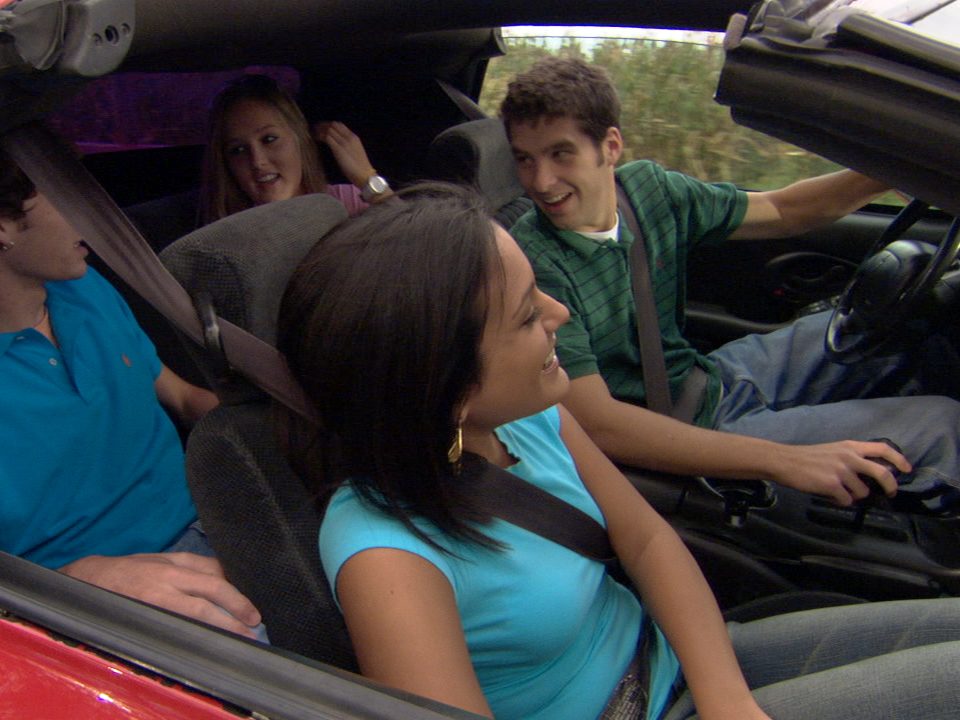- WE SAVE LIVES
- info@wesavelives.org
We Save Lives Joins Coalition Urging New York to Strengthen Drugged Driving Statute

Danelle Atwood
June 6, 2024
Where Are Our Road Safety Gains?
May 25, 2022Coalition to Protect New Yorkers From Drugged Driving
May 11, 2022
The Honorable Carl Heastie
Speaker
New York State Assembly
Legislative Office Building, Room 932
Albany, NY 12248
Dear Speaker Heastie,
We represent a broad coalition of traffic safety advocates, criminal justice professionals, businesses and organizations that are urging passage of S. 8913 and A. 9554 this year to ensure New Yorkers are protected from impaired drivers.
In 2019 and 2020, traffic deaths, including impaired driving deaths, have risen dramatically in New York and across the nation. As New Yorkers return to their offices and take summer vacations, it is critically important New York’s drugged driving statute is updated to protect the public from the growing problem of multiple substance impaired driving, potential increases in cannabis-impaired driving, and the ever-growing number of synthetic drugs. These policies should prioritize equity when implemented and should include a data collection component to understand if there are disparities in how these programs are utilized.
Passage of S. 8913/A. 9554 would improve existing law in the following ways:
• Drugged Driving will now apply to all impairing substances; not just those on a list
o Under current law, drivers cannot be arrested if the impairing drug is not on the New York Public Health Law (PHL) 3306 list and if the law enforcement officer cannot name it. The driver can refuse an identifying test and avoid arrest. New York is one of only six states still using a list that does not keep up with new and emerging impairing substances and synthetic drugs.
• Definitions of “impaired” and “intoxicated” are added to end confusion.
o Dangerous drug impairment that affects cognitive functioning and results in dangerous driving may not look like obvious intoxication. Some drug impairment can result in a failure to recognize and react to surroundings while the driver’s external change in appearance is subtle. Trained law enforcement officers can identify and articulate this less obvious but dangerous level of impairment. Recent court decisions have blurred these terms. These definitions codify long-standing judicial interpretation and retain the requirement to demonstrate evidence of actual driver impairment. The mere presence of a drug in a driver’s system is not enough to charge a person with drugged driving. Unlike alcohol, there is no scientific impairment level or “per se” number for any drug.
• Oral fluid field testing (OFFT) is added as a roadside screening tool to support probable cause and potentially exonerate
Oral fluid field testing (OFFT) screens for recent use (within 6-8 hours for cannabis) of drugs. As seen with DNA testing, OFFT can help exonerate as well as help establish probable cause and are used much like roadside preliminary breath tests (PBTs). OFFT results used alone do not prove impairment, nor do they prove sobriety. They do offer real-time evidence of recent drug use, which can assist in impaired driving investigations. The legislation also restores a traffic ticket for refusing to submit to a roadside screening for either alcohol or drugs. The traffic violation was removed by court decisions without legislative authorization.
• DRE exams are equated to evidential breath and blood tests for refusal sanctions
The Drug Recognition Evaluation is the best evidence of actual impairment and screens out exonerating medical conditions. Existing law encourages testing by imposing license sanctions for refusing to take an evidential test. The bill applies the same license revocation for refusing a DRE exam.
• Expands court orders for evidential blood draws in certain circumstances
o Current law only allows courts to order evidential blood draws in “serious physical injury or death” cases once a judge finds probable cause. The legislation would also allow courts to order evidential blood draws if a person refuses the test and after a judge has found probable cause in crash cases and for drivers with prior impaired driving charges.
• Suspends drugged drivers’ licenses pending prosecution, the same as alcohol DWI
o Under current law, a drugged driver can be arraigned and leave court with a valid license until the case is concluded. Drivers with a .08 BAC (or higher) are suspended. The bill suspends both alcohol intoxicated and drugged drivers’ licenses when there is a test result or admission.
The citizens of New York deserve as much protection as possible from those who choose to drive impaired and endanger lives. Please pass S. 8913 and A. 9554 into law without delay.
Sincerely,
John Corlett, AAA New York State
Wendy Tapfer, Association for the Community Parent Center
Robert Strassburger, Automotive Coalition for Traffic Safety
Terry McNaughton, Beam Suntory
Lawrence Williams, Car Dealers Saving Lives
Pam O’Donnell, Catch You Later Foundation
Andrew Freedman, Coalition for Cannabis Policy Education and Regulation
Jerry Dye Lynch, The Connor Lynch Foundation
Matt Stanton, Constellation Brands
Marge Lee, DEDICATEDD
Dwayne Kratt, Diageo
Jay Hibbard, Distilled Spirits Council of the United States
Mi Ae Lipe, Driving in the Real World
Ed Wood, DUID Victim Voices
Marc Bromfeld, Edrington Americas
Jeffrey L. Reynolds, Ph.D., Family & Children’s Association
Robert L. DuPont, MD, President, Institute for Behavior and Health, Inc.
Jerry Miller, Director, Institute for Traffic Safety Management & Research, State University of New York
Bryan Lewis, Intellicheck
Michael Rudy, Mast-Jägermeister US
Frank Harris, Mothers Against Drunk Driving
Scott Henderson, National Alliance for Drug Endangered Children
Darrin T. Grondel, National Alliance to Stop Impaired Driving
Michelle Anderson, National Roadway Safety Foundation
Lorraine Martin, National Safety Council
Timothy Parisi, NYS Association of Chiefs of Police
Peter Kehoe, New York State Sheriffs’ Association
Robert M. Richards, NYS STOP-DWI Coordinators’ Association, Inc.
Tara Engel, Pernod Ricard USA
Luke Niforatos, Protect Our Kids
Erin Meluso, Recording Artists Against Drunk Driving
William Aiken, Remove Intoxicated Drivers
Brandy Nannini, Responsibility.org
Kevin Sabet, Smart Approaches to Marijuana
Rick Birt, Students Against Destructive Decisions
Candace Lightner, We Save Lives
Thomas M. Louizou, Strategic Roadway Safety, Former NHTSA Regional Administrator (retired), Bayside
Hills, NY
Steve Casstevens, Chief, Buffalo Grove PD, Past President, International Association of Chiefs of Police




